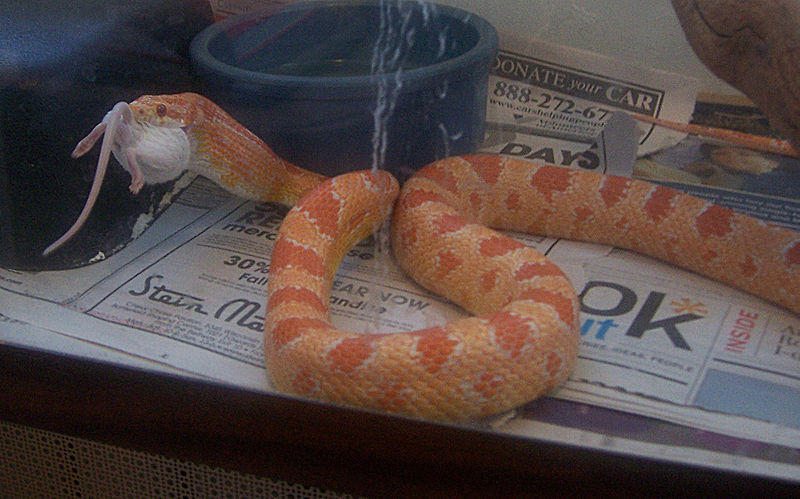 A decade or so ago, Cryptosporidiosis became recognized as a major concern in captive snake and lizard collections. Caused by a one-celled parasite known as Cryptosporidium varanii, the disease remains incurable to this day. At the Bronx Zoo, where I worked at the time, tests showed that many snakes already in our collection, along with wild and pet reptiles, might be harboring Cryptosporidium. But diagnosis was difficult and errors were common, resulting in the institution of expensive and time-consuming isolation protocols for new and sick animals. So I was happy to learn of a newly devised test that ensures early, accurate diagnosis of Cryptosporidium…it will surely prove useful to pet keepers and zoos alike.
A decade or so ago, Cryptosporidiosis became recognized as a major concern in captive snake and lizard collections. Caused by a one-celled parasite known as Cryptosporidium varanii, the disease remains incurable to this day. At the Bronx Zoo, where I worked at the time, tests showed that many snakes already in our collection, along with wild and pet reptiles, might be harboring Cryptosporidium. But diagnosis was difficult and errors were common, resulting in the institution of expensive and time-consuming isolation protocols for new and sick animals. So I was happy to learn of a newly devised test that ensures early, accurate diagnosis of Cryptosporidium…it will surely prove useful to pet keepers and zoos alike.
Crypto and the Pet Trade
A number of factors render Cryptosporidiosis as a major concern, including the popularity of reptile pets and the fact that the parasite can be transferred to people. While not often of major concern to healthy adults, Crypto, as it came to be known, is a danger to immune-compromised individuals (please see article below). A recent survey of 672 pets revealed that 1 in 6 of the Corn Snakes and 1 in 12 of the Leopard Geckos tested harbored Crypto in one form or another. Read More »
 That Reptile Blog – Reptile, Amphibian and Exotic Pet Care and Information
That Reptile Blog – Reptile, Amphibian and Exotic Pet Care and Information
